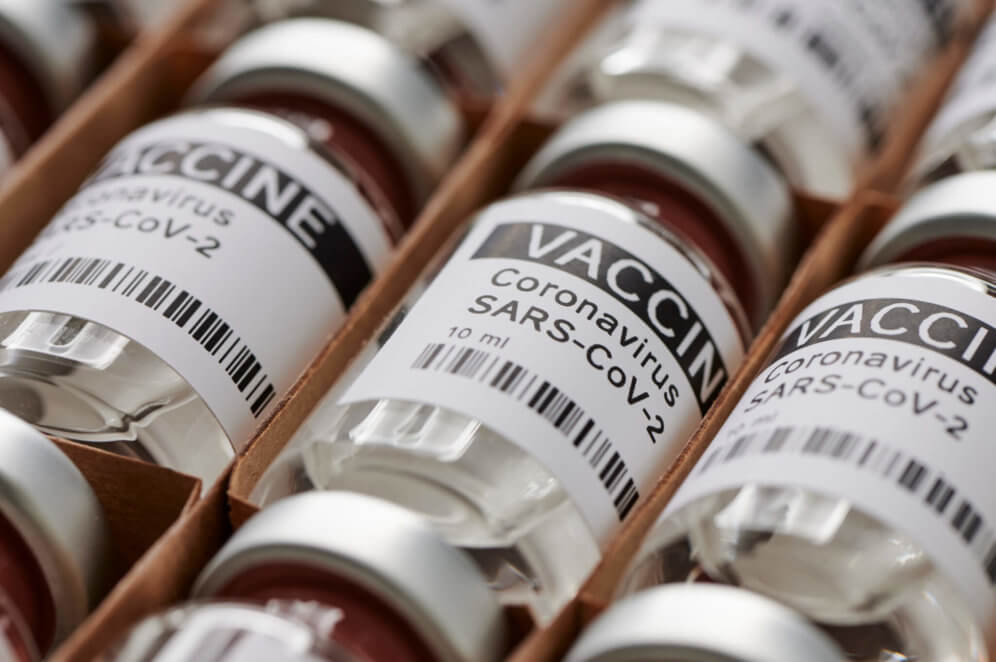
The Virginia Department of Health recently promoted the Delta variant to a Variant of Concern.
RICHMOND – B.1.617.2 – heard of it before? That’s the name of Covid-19’s Delta variant, which is raising concern here in Virginia and across the country.
Why the concern? Since March, the Delta variant infected 48 Virginians in four out of the state’s five health regions. Overall in the United States, it accounted for 9.5% of new cases, as of June 30. Overseas, Public Health England noted in its June 18 report that the Delta variant accounted for 91% of sequenced cases.
The WHO traced the earliest documented sample of the Delta variant to Oct. 2020 in India. On April 4, the WHO moved its status to a variant of Interest. By May 11, WHO moved it up to a variant of concern. Last Friday, the Virginia Department of Health joined the list of organizations that bumped the Delta variant up to a VOC ranking.
So what does that mean for Virginians? We’re here to present the facts and – hopefully – settle some fears.
What’s the Risk For The Delta Variant?
As we mentioned, the Delta variant has infected 48 Virginians so far.
However, state health officials noted that it is likely COVID-19 variants are more common in communities than the number of reported cases suggest. That’s because not all COVID-19 positive sample tests reveal the variant type.
So if it’s possibly more common, why the concern? First, the Delta variant spreads quicker than the standard version. Also, it can cause more severe infections.
“The Delta variant spreads more easily and quickly than other variants. Its ability to spread is believed to be 40% to 60% greater than the Alpha variant, or B.1.1.7,” said Melissa Gordon, VDH public information officer. “More studies are being done to confirm this.”
Six VOCs of the virus causing COVID-19 reached Virginia. Those variants originated from the United Kingdom, South Africa, Brazil, two from California in the United States and most recently India.
The VDH cautioned that if variants continue to spread in the United States, a surge in cases could overwhelm the healthcare system and prolong the pandemic.
I’m Vaccinated: Am I Protected?
While proven safe and effective, none of the COVID vaccines provide 100% immunity against COVID-19.
The Pfizer-BioNTech vaccine is 95% effective at preventing symptomatic disease. Moderna proves 94.1% effective for those with no prior COVID-19 infections, dropping to 86.4% for people ages 65 and older. The Johnson & Johnson vaccine boasts 72% overall efficacy and 86% efficacy against severe disease in the United States.
Those with full vaccination status have a lesser chance of catching the Delta variant, but it’s not impossible.
“All three vaccines are safe and effective in protection against the Delta variant if all required doses are taken,” Gordon said. “There is potential reduction of immune protection to the Delta variant offered by vaccination or natural infection. This is being closely monitored.”
A group of Oxford University researchers studied antibodies in the blood of fully vaccinated individuals. They focused on whether or not the vaccines neutralized the Delta and Kappa variants.
The group recently published their findings in the scientific journal Cell. They found “no evidence of widespread [infection], suggesting that the current generation of vaccines will provide protection against the B.1.617 lineage.”
Who’s At-Risk?
Those most at-risk for infection probably won’t come as a surprise.
“Those who are unvaccinated are at a greater risk of being infected with any variant,” Gordon said. “Older people – those 65 and older – and people living in a nursing home or long-term care facility are at greater risk for serious illness from COVID-19. People of any age with certain medical conditions and disabilities are at increased risk of severe illness from COVID-19.”
She also noted that systemic health and social inequities put people from racial and ethnic minority groups at increased risk of serious illness and death from COVID-19.
Even those who already experienced COVID can catch the Delta variant.
“People can recover and become infected again with COVID-19. Such cases have been reported, but remain rare. Based on what we know from similar viruses, some re-infections are expected,” Gordon said. “We are still learning more about COVID-19. At this time, whether you have had COVID-19 or not, the best way to prevent infection is to take steps to protect yourself.”
Continued precautions include getting the vaccine, wearing a mask, social distancing, avoiding crowds and poorly ventilated spaces and washing hands often.
The VDH will update its VOC dashboard once a week on Fridays.
Amie Knowles reports for Dogwood. You can reach her at [email protected]
Politics

VIDEO: Rep. Abigail Spanberger speaks on right to contraception bill veto
Rep. Abigail Spanberger (D-Va.) criticized Youngkin’s refusal to sign a bill that would have given Virginians a legal right to contraception, saying...

Spanberger calls Youngkin’s refusal to sign birth control access bill ‘outrageous’
Spanberger criticized Youngkin’s refusal to sign a bill that would have given Virginians a legal right to contraception, saying the move follows the...
Local News

Southside woman keeps the arts alive through community theatre
Katelyn Murray, a financial planner from the Danville area, grew up on stage. “I have been dancing since I was three, up through 23. I've been...

Virginia’s Homegrown Stars Had Big Moments in 2023
Although such celebrity meccas as New York and California may come to mind when you think of famous people, Virginia also has its fair share of...





